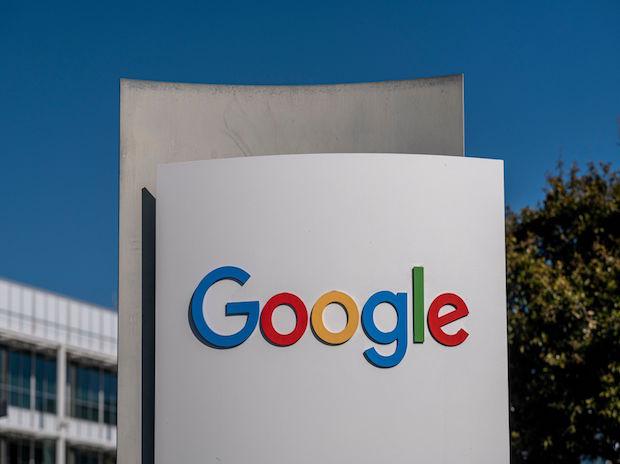[ad_1]
As Google evaluates its response to two recent penalties slapped by the Competition Commission of India (CCI), here is a look at the app economy.
Apps are bread and butter for mobile operating systems. India ranks second in the number of mobile downloads, with nearly 27 billion downloads in 2021, according to Deloitte. Accounting for 11.6 per cent of global app downloads, the Indian smartphone user spends more than 4 hours a day on apps. The revenue for apps is expected to reach $2.3 billion in the country by 2026.
Google’s Android operating system (OS) controls 95 per cent of this app ecosystem. The CCI has said that Alphabet-owned Google abused its “dominant position” in the ecosystem. It slapped a fine of Rs 936.44 crore, as well as a cease-and-desist order on the tech giant on its policies for Play Store.
Before that, the anti-trust regulator fined Google another Rs 1,338 crore for anticompetitive practices related to the Android OS.
In its response, Google said that the “Indian (app) developers have benefited from the technology, security, consumer protections, and unrivaled choice and flexibility that Android and Google Play provide.”
As expected, the CCI’s order about Play Store and Google Play Billing System (GPBS) has supporters and those who think this will stifle innovation in the Indian app ecosystem.
“The order does not account for the long history of developments that have made Google’s Android the dominant OS in the Indian markets. As opposed to its major competitors, the basic Android OS is available free of cost on smartphones across price segments. This has benefited the digital India ecosystem,” said Gowree Gokhale, partner at Nishith Desai Associates.
Gokhale said that given the OS itself is free, Google claims that it can avail a business model where some apps can be made available free of charge, while other apps which can be monetized are promoted to maintain a steady stream of investment. This in turn is required for sustaining a continuous ecosystem of innovation for both Google and the other app developers.
Gokhale said that there “seems to be no thorough investigation from the CCI, e.g. survey of end users and start-ups, quality of products offered by competitors versus the quality that Google offers. Moreover, the CCI needs to consider the overall impact of Google’s app services, including how the mass availability of the Android OS and the Play Store has helped make education and logistical services more readily available during the pandemic years. Section 19 of the Competition Act requires a holistic approach to be adopted. This seems missing in the order.”
The Alliance of Digital India Foundation (ADIF) agrees with the CCI’s orders. The organization, which has been pushing for legislation to rein in app gatekeepers like Google and Apple, believes that both firms have used their dominance to amass more market and revenue share from app developers.
For instance, till a few months back Google allowed only its payment system for app developers and users for in-app purchases or any payments. The mandatory use came with a heavy commission, which has been reduced from 30 per cent to 15 per cent. The company is also testing third-party payment options, but in a measured way.
With CCI asking Google to discontinue its policies, app users may get to use third-party payment platforms like Paytm, PhonePay, or UPI. It many lead to market competition deciding commission fee–that can go as low as 3-4 per cent, said industry players.
Barnik Chitran Maitra, managing partner at Arthur D. Little India & South Asia, called CCI’s order a “welcome move”. “Contrary to what tech majors like Google or Apple might claim, it will spur more innovation and incentivise players to build products. In an era when we are increasingly moving towards a decentralised ecosystem like the Web3, it doesn’t make sense to have a market situation where one company owns 90 per cent of search, a majority of premium devices, or even the dominant operating system prevents across premium devices,” he says.
Maitra believes that the orders are a sign that Indian regulators are serious about monitoring the “monopolising practices of tech majors.” While he agrees that the Android OS is indeed a low-cost operating system, much more financially accessible than its immediate competitors, he points out that Google’s revenue from search as well as ad services more than makes up for its investments in its app store.
“App developers will welcome the scope of increasing the competition between app provider services, diversify their offerings and thus increase the array of options for the developers to choose from.”
App developers seem to be of a like mind. The co-founder of a US-based start-up that develops wearable health-monitoring devices and who did not wish to identify herself or the app, said: “India is one of the biggest marketplaces in the world for any mobile technology, and a prime target for most upcoming tech developers. While getting onto the Google Play Store is easy, and ensures you have access to a massive pie share of this market, as new players in the app and wearables space we have also felt the need for more options and flexibility.”
The start-up leader welcomed the idea of third-party payment options, that the GPBS hinders the developer’s chance of balancing out payment options in such a way that premium services are not too costly for the users. “For new start-ups, such as ours, our premium offerings become an important source of returns. But we do want to keep the prices of these services at manageable levels. Even a 15 per cent cut by the GPBS, raises the consumer cost for these services, often to a discouraging range.”
With a similar case for Apple looming on the horizon, the CCI’s mandate as well as the welcome it has received from app developers is a clear indication that app store services need to rapidly relax their payment and subscription policies while also diversifying their offerings.
[ad_2]
Source link




